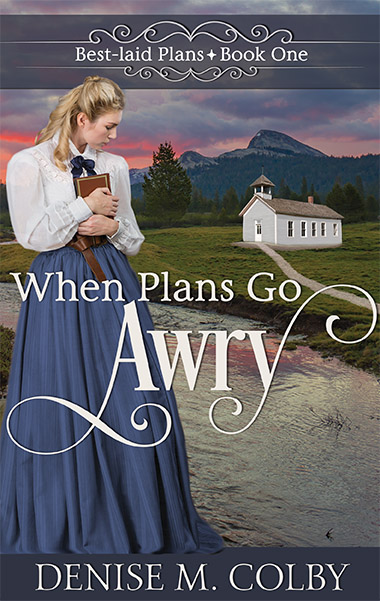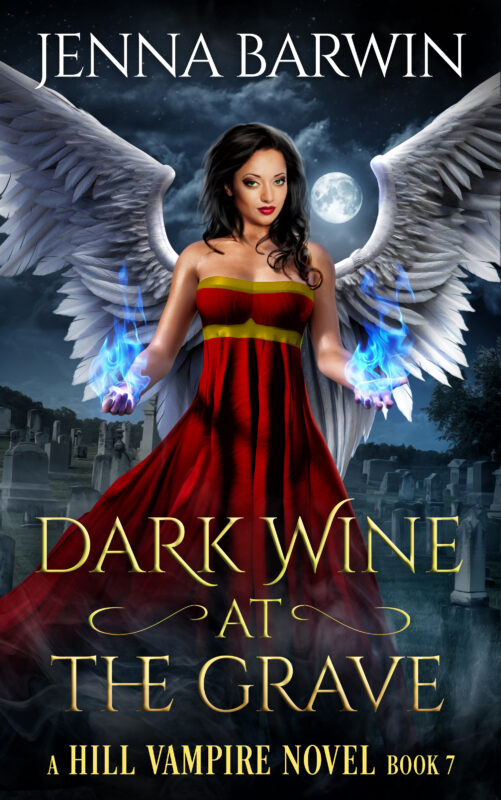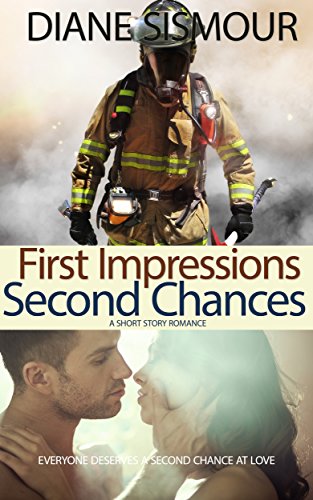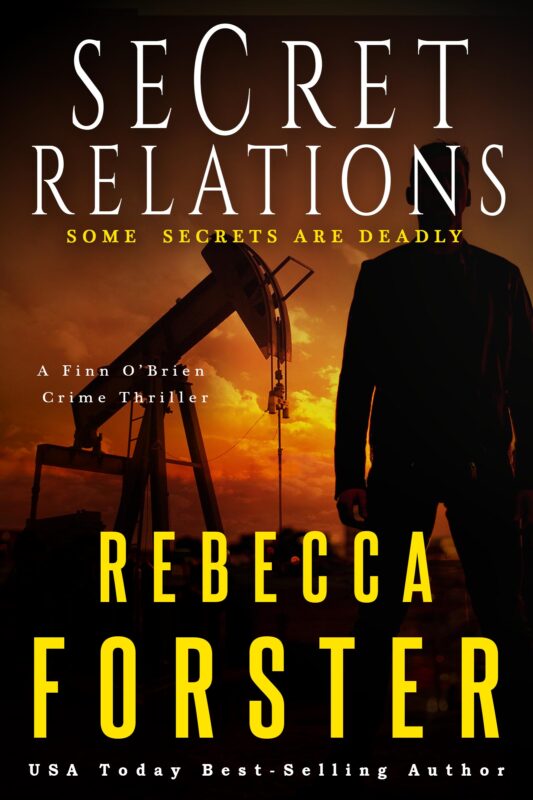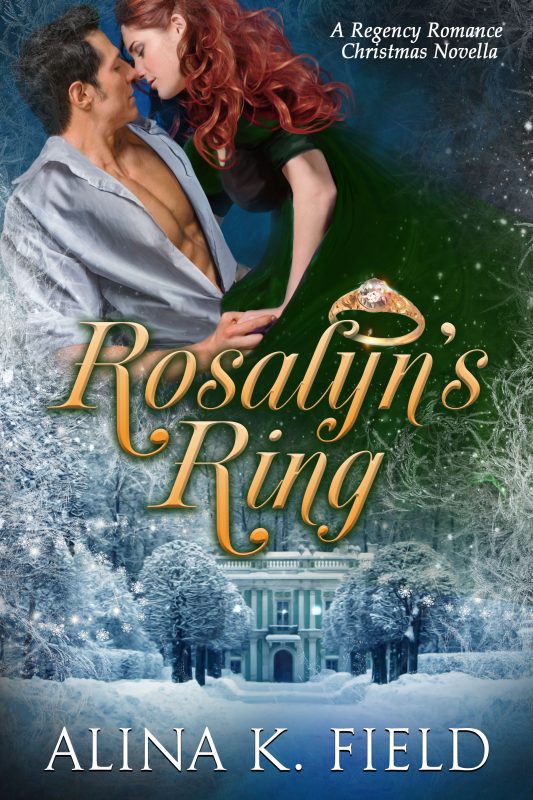Quarter Days: Queen Victoria, Mangoes, and Book vs. Film
June 28, 2019 by Alina K. Field in category Quarter Days by Alina K. FieldGreetings and happy summer!
 A few ideas popped up for this post, but since I write historical fiction, I decided to honor Midsummer by talking about Queen Victoria, with a passing mention of mangoes.
A few ideas popped up for this post, but since I write historical fiction, I decided to honor Midsummer by talking about Queen Victoria, with a passing mention of mangoes.
June 28, 2019, is the 181st anniversary of the coronation of the nineteen-year-old Queen Victoria. Her stable and fecund marriage and her famous stodginess has branded the looooong years of her reign in the same way the post-World War II 1950s are remembered as Ozzie and Harriet-land.
For someone so stuffy and boring, Victoria has managed to stir up a lot of twentieth and twenty-first century publicity. The movie Mrs. Brown depicted her long and intimate friendship with Scottish servant, John Brown; The Young Victoria covered her early life, marriage and court intrigues; and of course, there’s the PBS mini-series about her which just finished its second season.
Her most recent depiction in film is Victoria and Abdul. The movie features the “Munshi-mania” surrounding her close friendship with another much younger and much more-foreign-than-a-Scotsman male servant. Abdul Karim, a Muslim Indian from Agra, became her teacher, or “Munshi”.
Back to our June fruit
 Last year Victoria’s name popped up when the Wall Street Journal featured an article by novelist Chandrahas Choudhury about the 1663 varieties of Indian mangoes. Persuaded by her Munshi’s praise of the “Queen of Fruit”, Queen Victoria ordered her household to import mangoes from India. They were, predictably, “off” because of the fruit’s short shelf life.
Last year Victoria’s name popped up when the Wall Street Journal featured an article by novelist Chandrahas Choudhury about the 1663 varieties of Indian mangoes. Persuaded by her Munshi’s praise of the “Queen of Fruit”, Queen Victoria ordered her household to import mangoes from India. They were, predictably, “off” because of the fruit’s short shelf life.
I personally don’t like mangoes, but Choudhury has an explanation for that:
Whichever god brought forth the mango, she did so as a project that would frustrate imperial desires in the 19th century and defeat even the global supply system of capitalism in the 21st. That’s why almost all the mangoes in American markets are the fine-looking but bland, fibrous pretenders from Florida, Brazil or Mexico, not the storied ones of India.
Someday maybe I’ll get to visit India and sample a true Queen of Fruit.
Victoria and Abdul
 Motivated by the mango story, I watched the movie Victoria and Abdul and started the book on which the movie is based. Shrabani Basu’s book is a beautifully written work of nonfiction. She delves into the patronage culture of Victoria’s court and British colonialism to tell the story about the deep friendship between the Queen and Karim.
Motivated by the mango story, I watched the movie Victoria and Abdul and started the book on which the movie is based. Shrabani Basu’s book is a beautifully written work of nonfiction. She delves into the patronage culture of Victoria’s court and British colonialism to tell the story about the deep friendship between the Queen and Karim.
When the elderly Queen Victoria is smitten by young Karim, the court is appalled at their growing friendship and the gifts she showers on him as he tutors her in Urdu and Indian culture.
What was the Queen’s motivation? Basu has this to say:
What her family could not comprehend was that the Queen was a born romantic…The death of her beloved husband had left her lonely and heartbroken…It fell to John Brown to draw her out of her self-imposed isolation, and the Queen soon leaned strongly on him. Brown was devoted to her and she could talk freely to him…His death once again robbed her of a companion.
When the Munshi arrived…his presence lifted her spirits…The Queen sensed a certain depth in Karim and found she could talk to him comfortably despite the language barriers. Karim brought her closer to India, the country that she had always longed to visit.
Is true friendship and loyalty possible between a powerful older woman and a younger man? Why would Karim leave the warmth of India for the cold and hostile British Court?
In the film, an Indian servant tells the British courtiers that Karim was toadying for favors like everyone else there. Otherwise, the filmmakers depict a close friendship between the Queen and her Munshi. Based on her research, Basu believes Karim’s regard for the Queen was genuine.
Book vs. Film
“All history is written by the victors,” and worthy of questioning. This is especially true of films which are crafted to make sure tickets sell and the audience doesn’t fall asleep. Setting, costume, and language bring a story to life, but filmmakers pick and choose what to include, what to omit, and what to make up to hit all the plot points and story arcs.
The Victoria and Abdul filmmakers did a good job, but they were honest about their craft. The opening credits include this statement:
Based on real events mostly
My vote: if you want the full story, the book is always better. What do you think?
If you’ve read this far, thank you for indulging my historical nerdiness. Happy Summer!
All images are from Wikimedia Commons except for the mangoes which are from depositphotos.com
Aware by Neetu
June 26, 2019 by Neetu Malik in category Poet's Day by Neetu Malik tagged as Neetu Malik, Poet's Day, poetry, sand, tide, waves. quiet
Aware
I carve words in the sand
I know the tide will rise
and wash them away
but I write them
until my hands are gritty
and the color of sand
I speak to the waves
I know they don’t hear
but I let the words roll out
of my mouth anyway
until they sound
like the waves
I listen to the wind
even when it is still
I can hear silence in the quiet
it utters words I wouldn’t
otherwise hear—they come
from within
© Neetu Malik
First published in TAT Poetry, December 2016
Veronica Jorge Reviews: #PleaseSayYes A Novel by Tari Lynn Jewett
June 22, 2019 by Veronica Jorge in category Book Reviews by Veronica Jorge, Write From the Heart by Veronica Jorge tagged as #PleaseSayYes, romance, romantic comedy, Social Media, sweet romance, Tari Lynn Jewett
#PleaseSayYes
Tari Lynn Jewett
ISBN 978 173 3594318
Review:
Life can get complicated, but it helps when you have good friends, especially the kind who know what you need before you do, and who set out to help you even when you think you don’t need it. Confusion? Oh, yeah! Ticked off? Maybe a little.
Still brooding over her breakup last year, Lucy Vaughn settles in to her day job as an elementary school teacher. Evenings, she curls up with a Victorian romance novel. Life is peaceful, but lonely, until her friends and social media take over her life.
Lucy has a secret admirer who’s too shy to ask her out. So his brother decides to help things along to connect him with Lucy. He posts an anonymous invitation as a secret admirer asking Lucy to be his date for Valentine’s. Each day, he adds to the post giving hints as to his identity.
Lucy and her best friend Ashley sort through the clues: local guy, owns his own business, and he’s a musician. Then they compile a list of possibilities. Could it be the guy she met at the New Year’s Party? The techie from the school field trip? Her new neighbor?
Or maybe it’s the man Lucy least expects. He’s closer than she thinks. In fact, he has no idea that his brother has set this event in motion.
The social media posts, like true love, spiral out of control and go viral. Soon the whole world is commenting and urging Lucy to, “Please say yes!”
Got friends? On social media? Prepare yourself. You just might be the next Lucy Vaughn.
So while you’re waiting for your friends to take over your life, for your good of course, read Tari Lynn Jewett’s, #PleaseSayYes. It will make you laugh and warm your heart.
See you next time on July 22nd.
~Veronica
June Author: Denise M. Colby
June 21, 2019 by marianne h donley in category Apples & Oranges by Marianne H. Donley, Featured Author of the Month tagged as Christian Historical Fiction, Denise M Colby, Marketing, Social Media, writing

Denise M. Colby loves to write words that encourage, enrich, and engage whether it’s in her blog, social media, magazine articles, or devotions. With over 20+ years’ experience in marketing, she enjoys using her skills to help other authors. She treasures the written word and the messages that can be conveyed when certain words are strung together. An avid journal writer, she usually can be found with a pen and notepad whenever she’s reading God’s word. Denise is writing her first novel, a Christian Historical Romance and can be found at www.denisemcolby.com
She’s a member of RWA, OCC/RWA, Faith, Hope & Love Chapter of RWA, ACFW (where she is a semi-finalist in the Genesis contest Historical Romance Category), OC Chapter of ACFW, and SoCal Christian Writers’ Conference (where she will be teaching two workshops in June – Brand and SEO Marketing for Your Website).
In addition to Denise’s column The Writing Journey on A Slice of Orange, you can read some of her magazine article here.
Denise M. Colby’s Books
Who Tells the Tale? Narrative Voice by Jenny Jensen
June 19, 2019 by Jenny Jensen in category On writing . . . by Jenny Jensen tagged as 1st person, editing, Narrative Voice, writing
Narrative Voice
The creative process is a mystery to me. I like it that way. Not knowing how or why an author chooses a certain literary device makes every book I read a fresh experience. I’m not always wowed by the tale but I like to start with no bias. Just lately though, I can’t help wondering what drives so many of my clients to write in 1st person. I love a good tale told in 1st person but it’s the most difficult narrative voice to get right.
Up until the mid 20th century the lion’s share of novels were written in 3rd person. A quick glance of current literary prizewinners shows 30% written in 1st person (The Handmaid’s Tale, The Hunger Games, The Martian etc.). Current genre and commercial fiction is more like 50%. Clearly, this is the age of 1st person and I think I know why—energy, immediacy and intimacy. While those three qualities attract us they’re also what makes 1st person hard to write well.
Be Compelling
The narrator has to be interesting enough to carry the reader through 200 plus pages of story. Basically it’s the only voice we hear so it better be entertaining. The character can be droll, hysterically funny, bitingly snarky, painfully deluded, even seriously insightful—as long as the energy exuded is compelling. Sometimes the narrator exists to showcase the main character. Watson is a rather deluded and bumbling narrator but we become fond of him. It’s his subject, Holmes that keeps the reader riveted. We want to stay for the whole ride.
1st person is both immediate and intimate. The reader sees the action through the narrator’s eyes rather than from the outside. It’s close up and personal so the reader has a sense of being present as the action takes place. With a compelling narrator and interesting plot it’s easy for the reader to feel they have a stake in the story. 1st person reads like a journal or a personal letter. The reader sees, hears and knows what the narrator sees, hears and knows. There’s no distance between us—all the more reason to craft a compelling narrator. The narrator speaks directly to us. Well done, 1st person is more exciting, more emotionally engaging and more satisfying than the viral YouTubes of laughing babies and crazy critters caught on camera. No wonder we love it.
Remove Filter Words
There is one cardinal sin when writing 1st person – filter words. They put a dampening distance between the reader and the action. Because we see, hear, smell, feel and know what the narrator does there is no room for distancing the reader.
“I even thought of doing something gossipy…”
Filter words removed:
“I considered something gossipy…”
I could hear…I thought…I felt…I saw…chop away the filter words and close the distance. Good first person narrative is always from behind the character’s eyes.
Having put these thoughts down I think I’m going to read The Perks of Being a Wallflower (Chbosky). I love a good first person story. Do you?
~Jenny
Affiliate Links
A Slice of Orange is an affiliate with some of the booksellers listed on this website, including Barnes & Nobel, Books A Million, iBooks, Kobo, and Smashwords. This means A Slice of Orange may earn a small advertising fee from sales made through the links used on this website. There are reminders of these affiliate links on the pages for individual books.
Search A Slice of Orange
Find a Column
Archives
Featured Books
DARK WINE AT THE GRAVE
Henry never thought he’d turn someone vampire. Especially someone who wasn’t his mate…
More info →FIRST IMPRESSIONS SECOND CHANGES
Everyone deserves a second change at love.
More info →SECRET RELATIONS
They're illegal. They're undocumented. They're disappearing.
More info →ROSALYN’S RING
A rash Christmas Eve quest to save a young woman lands a Baron’s daughter in the lap of a jaded Viscount…and he’s not letting her go.
More info →Newsletter
Contributing Authors
Search A Slice of Orange
Find a Column
Archives
Authors in the Bookstore
- A. E. Decker
- A. J. Scudiere
- A.J. Sidransky
- Abby Collette
- Alanna Lucus
- Albert Marrin
- Alice Duncan
- Alina K. Field
- Alison Green Myers
- Andi Lawrencovna
- Andrew C Raiford
- Angela Pryce
- Aviva Vaughn
- Barbara Ankrum
- Bethlehem Writers Group, LLC
- Carol L. Wright
- Celeste Barclay
- Christina Alexandra
- Christopher D. Ochs
- Claire Davon
- Claire Naden
- Courtnee Turner Hoyle
- Courtney Annicchiarico
- D. Lieber
- Daniel V. Meier Jr.
- Debra Dixon
- Debra H. Goldstein
- Debra Holland
- Dee Ann Palmer
- Denise M. Colby
- Diane Benefiel
- Diane Sismour
- Dianna Sinovic
- DT Krippene
- E.B. Dawson
- Emilie Dallaire
- Emily Brightwell
- Emily PW Murphy
- Fae Rowen
- Faith L. Justice
- Frances Amati
- Geralyn Corcillo
- Glynnis Campbell
- Greg Jolley
- H. O. Charles
- Jaclyn Roché
- Jacqueline Diamond
- Janet Lynn and Will Zeilinger
- Jaya Mehta
- Jeff Baird
- Jenna Barwin
- Jenne Kern
- Jennifer D. Bokal
- Jennifer Lyon
- Jerome W. McFadden
- Jill Piscitello
- Jina Bacarr
- Jo A. Hiestand
- Jodi Bogert
- Jolina Petersheim
- Jonathan Maberry
- Joy Allyson
- Judy Duarte
- Justin Murphy
- Justine Davis
- Kat Martin
- Kidd Wadsworth
- Kitty Bucholtz
- Kristy Tate
- Larry Deibert
- Larry Hamilton
- Laura Drake
- Laurie Stevens
- Leslie Knowles
- Li-Ying Lundquist
- Linda Carroll-Bradd
- Linda Lappin
- Linda McLaughlin
- Linda O. Johnston
- Lisa Preston
- Lolo Paige
- Loran Holt
- Lyssa Kay Adams
- Madeline Ash
- Margarita Engle
- Marguerite Quantaine
- Marianne H. Donley
- Mary Castillo
- Maureen Klovers
- Megan Haskell
- Melanie Waterbury
- Melisa Rivero
- Melissa Chambers
- Melodie Winawer
- Meriam Wilhelm
- Mikel J. Wilson
- Mindy Neff
- Monica McCabe
- Nancy Brashear
- Neetu Malik
- Nikki Prince
- Once Upon Anthologies
- Paula Gail Benson
- Penny Reid
- Peter Barbour
- Priscilla Oliveras
- R. H. Kohno
- Rachel Hailey
- Ralph Hieb
- Ramcy Diek
- Ransom Stephens
- Rebecca Forster
- Renae Wrich
- Roxy Matthews
- Ryder Hunte Clancy
- Sally Paradysz
- Sheila Colón-Bagley
- Simone de Muñoz
- Sophie Barnes
- Susan Kaye Quinn
- Susan Lynn Meyer
- Susan Squires
- T. D. Fox
- Tara C. Allred
- Tara Lain
- Tari Lynn Jewett
- Terri Osburn
- Tracy Reed
- Vera Jane Cook
- Vicki Crum
- Writing Something Romantic
Affiliate Links
A Slice of Orange is an affiliate with some of the booksellers listed on this website, including Barnes & Nobel, Books A Million, iBooks, Kobo, and Smashwords. This means A Slice of Orange may earn a small advertising fee from sales made through the links used on this website. There are reminders of these affiliate links on the pages for individual books.

















